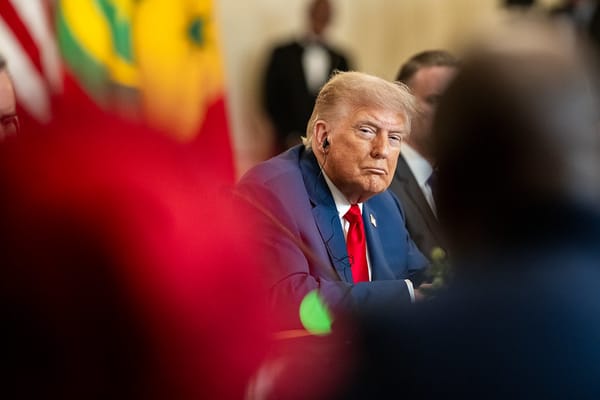Wind Offshore Energy: Government Sanctions, With Vetoes, Law Regulating the Sector
There are more than 100 offshore wind installation projects registered in Brazil, awaiting environmental licensing from Ibama
President Luiz Inácio Lula da Silva sanctioned on Friday night (Jan. 10, 2025) the law that regulates offshore wind energy exploitation in Brazil. The sanction came with vetoes to articles that had been included during the process in the National Congress.
- Here is Law 15,097, of January 10, 2025, in the DOU (Official Gazette of the Union).
- Here is Bill 576/2021, which deals with offshore wind farms.
- Access the interactive data panel on offshore wind farms from EPE (Energy Research Company).
- Here is the technical content from Ibama (Brazilian Institute of Environment and Renewable Natural Resources) with project maps (*we provide the documents below, in PDF).
Here are the main points of the sanctioned law:
- Establishes the regulatory framework for offshore wind energy exploitation in Brazil.
- Provides incentives for national industry development, job creation, and strengthening of energy security.
- Defines permitted locations for a generation: territorial sea, exclusive economic zone, and continental shelf.
- Establishes the process of granting and concession for companies, with contracts made by the Executive Branch.
Presidential vetoes:
Lula fully vetoed articles 22, 23, and 24 of the project, which contained the so-called "jabutis" (jargon for sections added during the project's process but unrelated to the original theme).
🚫 What was vetoed:
- Extension of coal-fired power plant contracts until 2050.
- Mandatory contracting of almost 5,000 megawatts in small hydroelectric plants (PCHs).
- Flexibilization of compulsory contracting of 8,000 MW of natural gas thermoelectric plants.
Justifications for the vetoes:
- Economic impact: Studies indicated that the "jabutis" could result in an additional cost of R$ 545 billion by 2050 for consumers, with a 9% increase in energy tariffs.
- Environmental issues: The vetoed amendments could increase greenhouse gas emissions from the electricity sector by about 25%, compromising Brazil's climate neutrality goals established before the international community.
- Interference in planning: The vetoes aim to preserve the electricity sector planning, coordinated by the Executive Branch and its specialized entities.
Perspectives, challenges, and next steps:
- The National Congress may still overturn the presidential vetoes.
- It is necessary to observe how negotiations for maintaining the vetoes between the government and Congressmen will unfold.
- If the vetoes are overturned, the government may judicialize the matter.
- The approval of the regulatory framework was seen as a crucial factor in attracting investments and developing Brazil's offshore wind potential, estimated at more than 700 GW.
- Legal security for investments in offshore wind farms increases, aligning with energy transition objectives.
- There are about 244 GW in offshore wind projects in the environmental licensing process at Ibama, more than 7 times the total installed capacity in onshore wind farms in the country, which is approximately 33 GW.
- The sector has the potential to generate more than 516,000 full-time jobs by 2050, with a gross added value of US$ 168 billion.
Additional information on offshore wind potential:
There are at least 103 offshore wind energy projects awaiting environmental licensing in Brazil, according to information published up to December 2024. These projects total a capacity of 244 Gigawatts (GW). The regional distribution of these projects is as follows:
- 47.2% in the Northeast region, mainly in the states of Ceará and Rio Grande do Norte.
- 32.5% in the South region.
- 20.3% in the Southeast region.
Criticisms of the veto of Article 23
The veto of Article 23 is criticized for potentially affecting DG (distributed generation) projects that already have signed contracts. ABGD (Brazilian Association of Distributed Generation) argues that maintaining this article would promote "regulatory justice" and protect investments already made.
Here are some criticisms of what was vetoed:
- It may negatively affect distributed generation (DG) projects that already have signed contracts.
- Potential loss of 8.6 GW of capacity in already approved distributed solar energy projects.
- Risk of compromising R$ 36 billion in investments in the solar energy sector.
Impact study and terms of reference
As early as 2019, during the previous administration, Ibama published a study with more than 190 pages on environmental decision-making models applied in Europe for offshore wind projects. Here is the document:
In 2020, Ibama published the TR (Terms of Reference), defining guidelines and general technical criteria to support environmental licensing. Here is the PDF document:
☞ Did you like it? This content is part of a broader technical report that Correio Sabiá sends weekly, in advance, to companies interested in environmental and energy issues. Get in touch to learn more and request a free 1-month demonstration: redacao@correiosabia.com.br.
Apoie nossos voos
Fazemos um trabalho jornalístico diário e incansável desde 2018, porque é isso que amamos e não existe nada melhor do que fazer o que se ama. Somos movidos a combater a desinformação e divulgar conhecimento científico.
Fortalecemos a democracia e aumentamos a conscientização sobre a preservação ambiental. Acreditamos que uma sociedade bem-informada toma decisões melhores, baseadas em fatos, dados e evidências. Empoderamos a audiência pela informação de qualidade.
Por ser de alta qualidade, nossa operação tem um custo. Não recebemos grana de empresas, por isso precisamos de você para continuar fazendo o que mais gostamos: cumprir nossa missão de empoderar a sociedade civil e te bem-informado. Nosso jornalismo é independente porque ele depende de você.
Apoie o Correio Sabiá. Cancele quando quiser.






